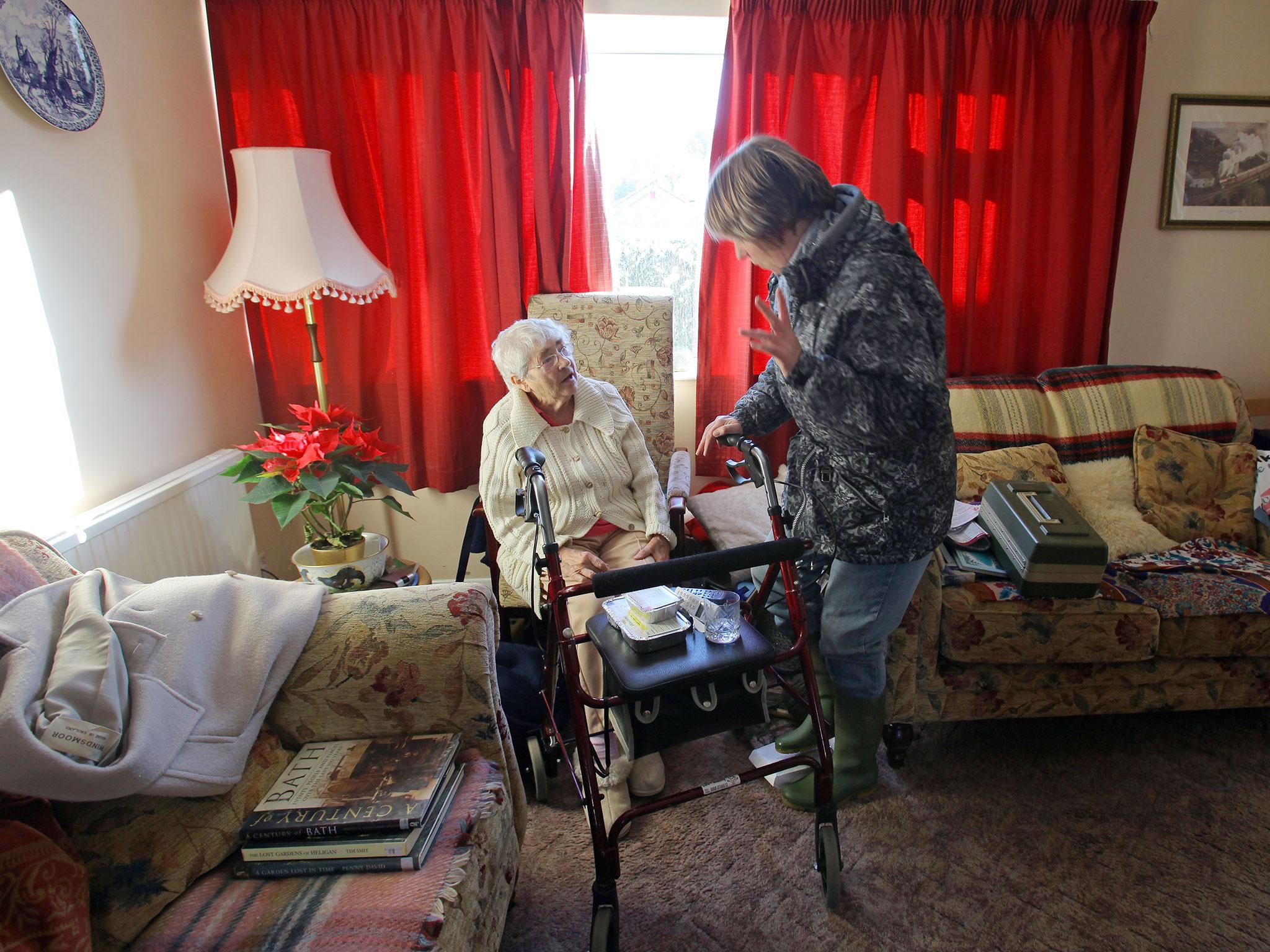We've already been paying for social care through an increase in council tax, and it's been going disastrously
Wealthier areas with a higher council tax base raise as much as three times more than poorer areas where the need for social care is much higher. It's not hard to see how this increases inequality

“Will you still need me, will you still feed me, when I’m 64?” is a Beatles lyric many baby boomers will recall. Nearly 40 years on, as life expectancy continues to rise, many more us are going to need care and support in later life and the question of how we pay for it is becoming a hotter political issue.
The social care system in England is beleaguered. Despite the growing numbers of older people, council funding for social care has been slashed by £5bn since 2010. Many organisations that provide care are struggling to stay afloat and are handing contracts back to councils. People stuck in hospital waiting for care at home have reached an all-time high. So there is speculation that, to prop up this failing system, the Government will allow councils to levy bigger increases in council tax next year through a special “precept”. Any extra funding for councils would certainly be welcome, but our analysis shows this is neither a fair nor an effective way of increasing funding for this essential public service.
This year almost all councils used the existing precept – an extra 2 per cent over and above the general council tax rise – to raise £382m, adding £23 to the annual average (band D) council tax bill. While this provided some welcome flexibility for councils, it does not even meet the £612m cost of the new national living wage and covers only 3 per cent of what councils plan to spend on social care this year.
Another significant problem is that wealthier areas with a higher council tax base will raise as much as three times more than poorer areas where the need for social care is much higher. Our analysis shows that the 10 least deprived areas will raise nearly two and a half times as much as the 10 most deprived. This will increase inequalities in places where councils have already been hit hard and disproportionately by cuts in central government grants. If social care is part of the Prime Minister's promise of a more equal country that works for everyone, then the precept is a poor policy instrument to achieve it.
So if the precept is not the answer, what is the solution? The Government has already pledged extra money through the Better Care Fund but most of it will not arrive until 2019. With the independent regulator the Care Quality Commission warning that the system is already at a tipping point, that will be too little, too late. As a minimum, the Government should bring forward much of that money so that it gets through to councils and care providers next year. This would steady the ship and stave off the threat of immediate crisis.
Beyond this short term action there is the bigger and tougher challenge of how we face up to the financial consequences of the success story that is our ageing population. This is one of the most pressing public policy challenges of our time. England is one of the few advanced countries that has not introduced major reforms to how we pay for care. It has eluded the efforts of every government since Tony Blair set up a royal commission to resolve this question in 1997.
Politicians of all parties need to unite in engaging with the public in a serious debate about the kind of care services most of us will need at some point in our lives, how far the costs should be shared between individuals, families and the state and where the money should come from.
In 2014 the independent Barker Commission argued that a new settlement is needed to put health and social care funding on a sustainable footing. It set out a variety of options to pay for this including general taxation, changes to national insurance, redirecting money spent on universal benefits for pensioners and reviewing wealth taxes. The fact that successive governments over the past 20 years have struggled to make little if any headway is testimony to just how hard this is. But without a proper plan, we will continue to lurch from one crisis to the next with mounting human as well as financial costs.
Richard Humphries is Assistant Director of Policy at The King’s Fund, a health and care policy think tank

Join our commenting forum
Join thought-provoking conversations, follow other Independent readers and see their replies